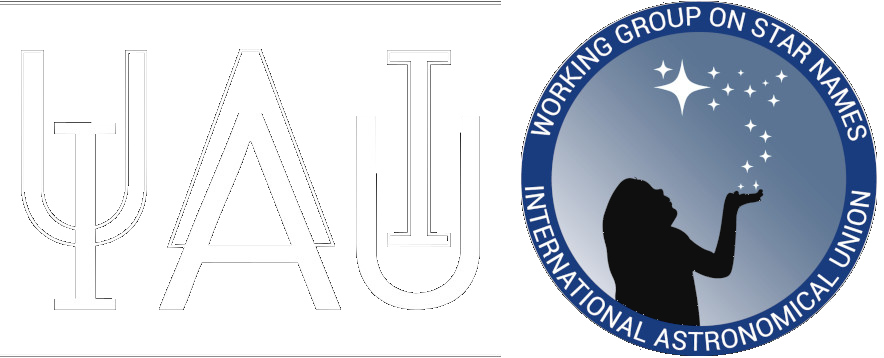Profile / Characteristics
| English translation | Latin declination and pronunciations | Size/ °² | # stars (visible) |
| the Water Bearer | Aquarius – uh-QUAIR-ee-us Aquarii – uh-QUAIR-ee-eye | 980 | 176 |
Main Star (brightest one):
| Designation | HIP number | name in IAU-CSN | brightness |
| α Aqr | HIP 109074 | Sadalmelik | 3.90 mag (V) |
Our (modern) Explanation
Aquarius is an old Babylonian constellation. He was the Babylonian god of wisdom and witchcraft, a anthropophilic god who equals the Christian one God but in contrast to this living in the sweet water. The Greeks took over the constellation with the zodiac, but did not understand the two streams of water surrounding him in Babylonian standard iconography, so they added a jar and called him “Water-Pourer”.
Ancient Globes
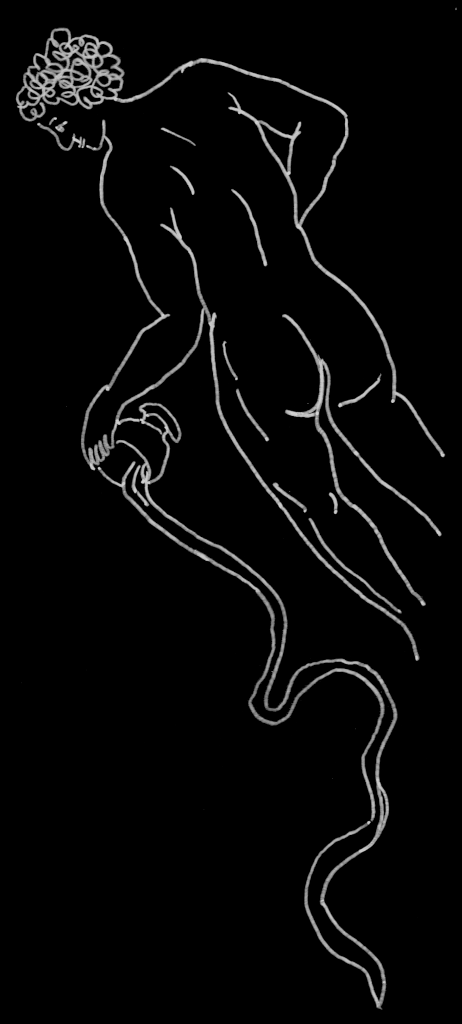
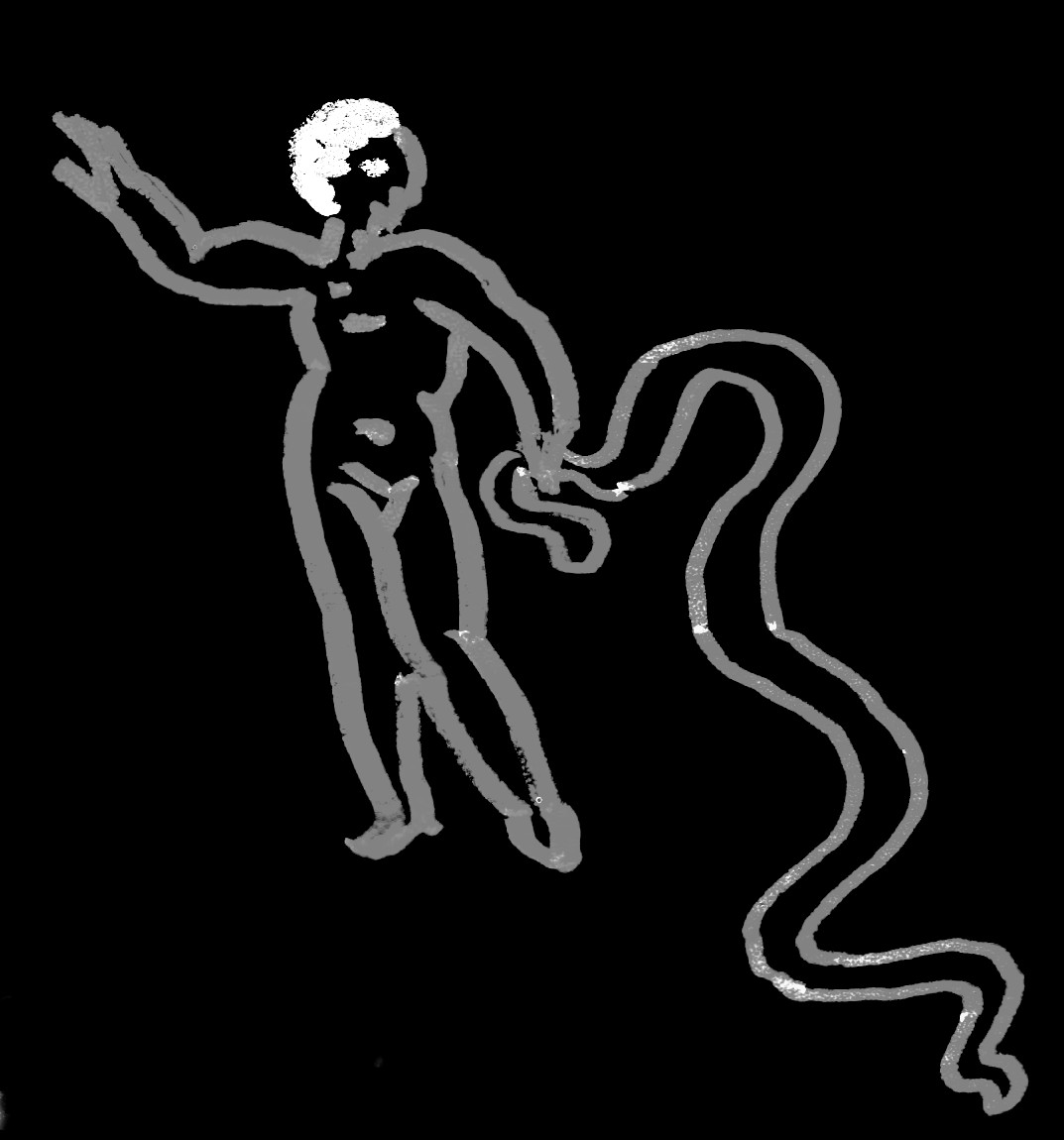
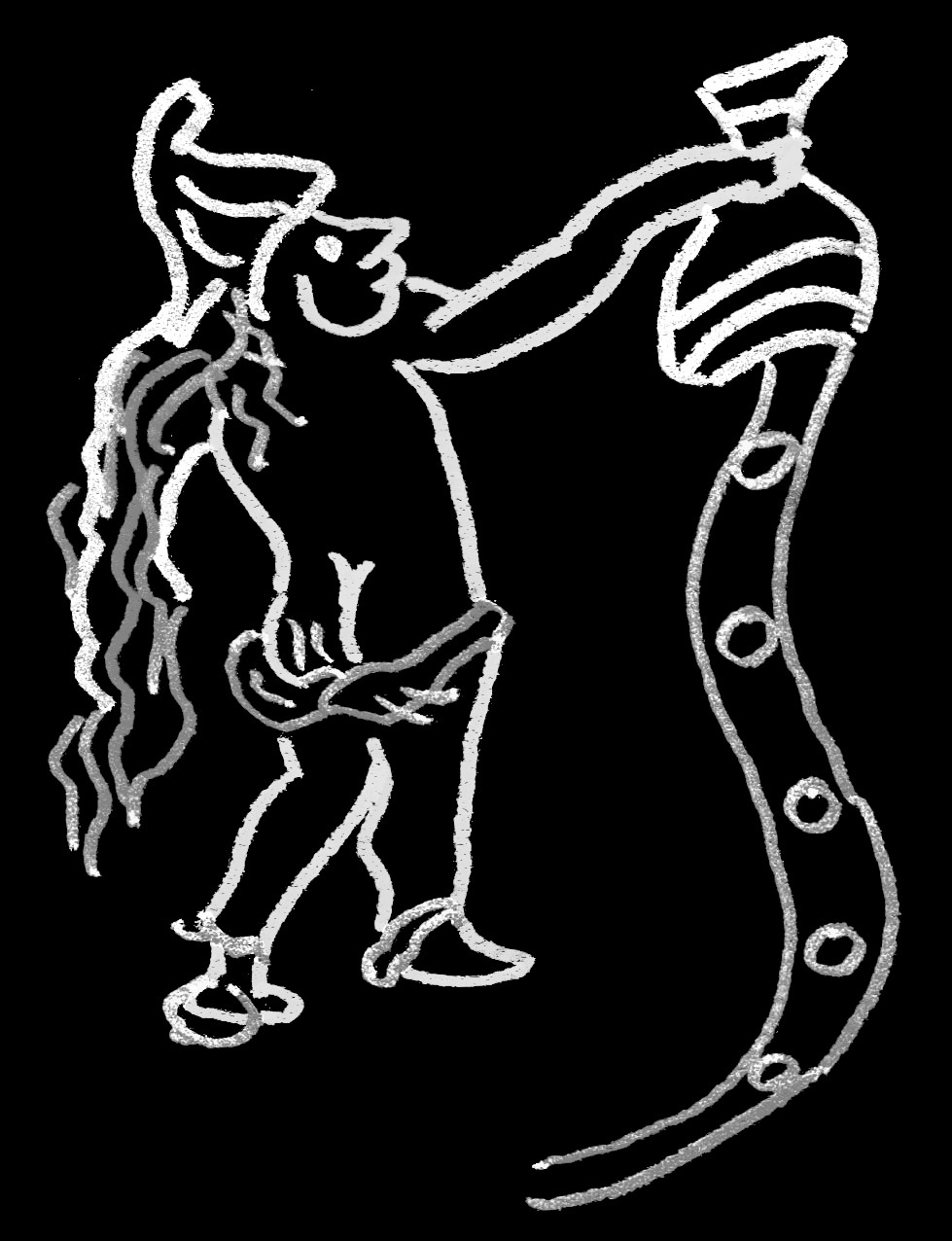
Farnese Globe
Kugel Globe
Mainz Globe
Ancient Lore & Meaning
Aratus
[282] Round the prancing Horse range the two Fishes. By the Horse’s head is stretched the right hand of Hydrochoüs [Aquarius]. [389] Other stars, sparsely set beneath Hydrochoüs [Aquarius], hang on high between Cetus in the heavens and the Fish, dim and nameless, and near them on the right hand of bright Hydrochoüs, like some sprinked drops of water lightly shed on this side and on that, other stars wheel bright-eyed though weak. But among them are borne two of more lustrous form, not far apart and yet not near: one beneath both feet of Hydrochoüs, a goodly star and bright, the other beneath the tail of dark-blue Cetus. This cluster as a whole men call The Water. [693] When Hydrochoüs [Aquarius] is just risen, up wheel the feet and head of the Horse.
Reference:
English translation by Douglas Kidd (1997).
Aratus: Phaenomena, Cambridge Classical Texts and Commentaries, Series Number 34
Pseudo-Eratosthenes
References:
French translation by:
Jordi Pàmias i Massana and Arnaud Zucker (2013). Ératosthènes de Cyrène – Catastérismes, Les Belles Lettres, Paris
English version in:
Robin Hard (2015): Eratosthenes and Hyginus Constellation Myths with Aratus’s Phaenomena, Oxford World’s Classics
Modern and Mediaeval Depiction
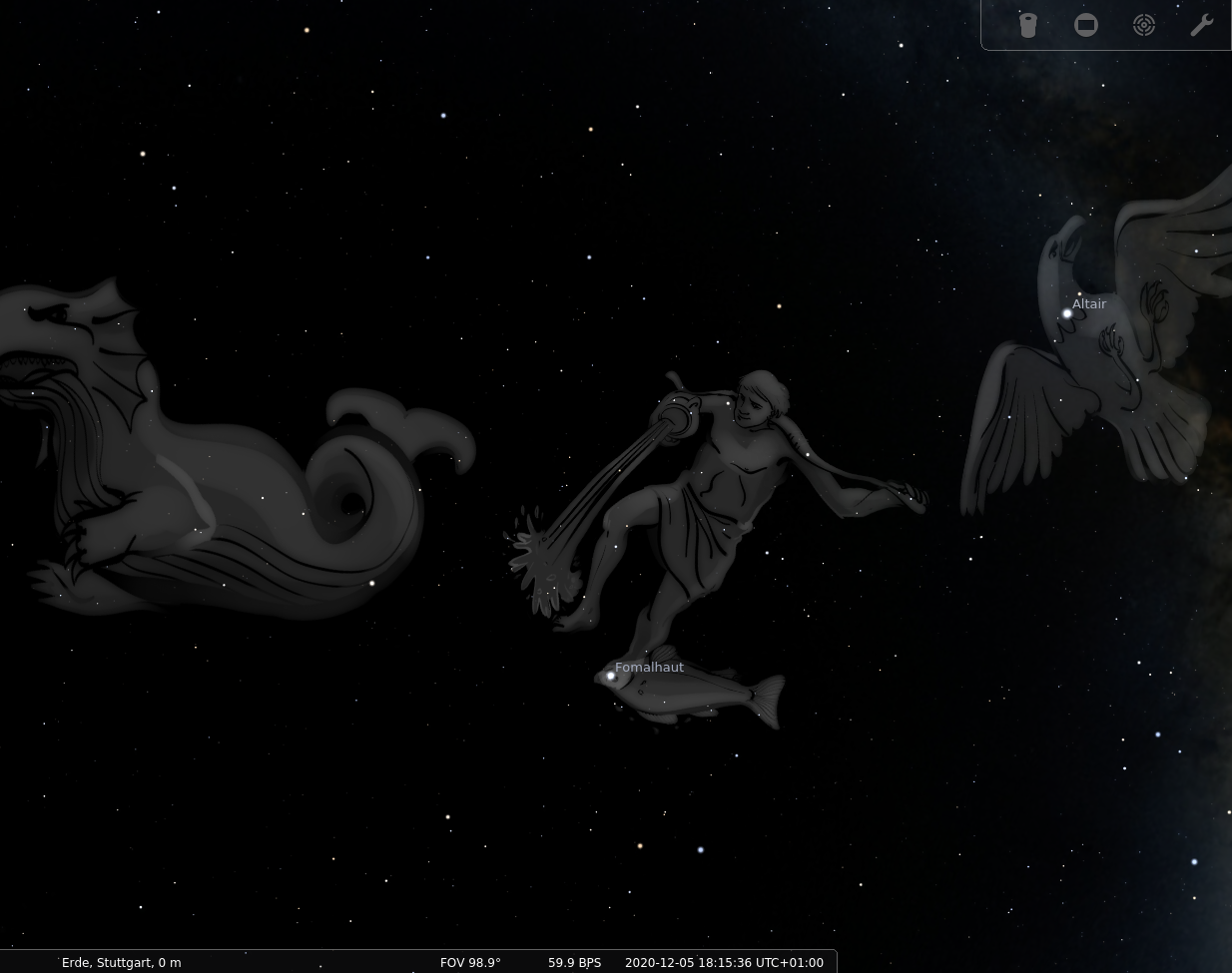
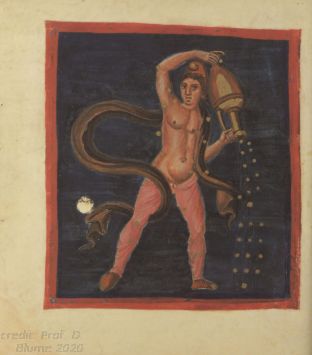
Depiction in Stellarium (by Fabien Chéreau, since 2000 CE)
depiction in the Leiden Aratea (9th century CE)
Early Modern Interpretation
Contemporary
As one of their first tasks in the 1920s, the newly founded International Astronomical Union (IAU) established constellation standards. The Belgian astronomer Eugène Delporte was assigned to the task to define borders of constellations parallel to lines of declination and right ascension. They were accepted by the General Assembly in 1928. The standardized names and abbreviations had already been accepted in 1922 and 1925.

